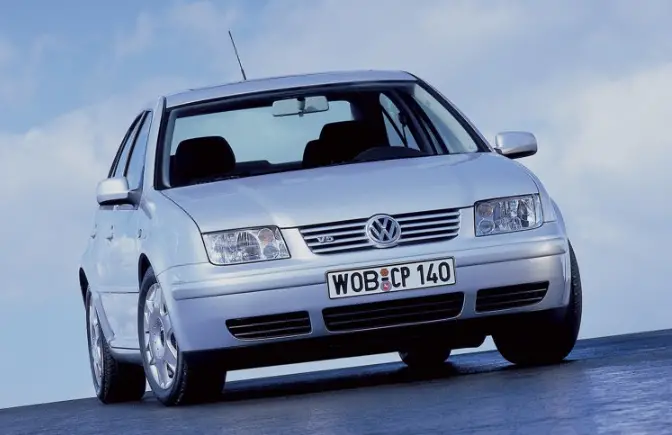Navigating The Jetta Landscape: Understanding Years To Avoid
Navigating the Jetta Landscape: Understanding Years to Avoid
Navigating the Jetta Landscape: Understanding Years to Avoid
Introduction
In this auspicious occasion, we are delighted to delve into the intriguing topic related to Navigating the Jetta Landscape: Understanding Years to Avoid. Let’s weave interesting information and offer fresh perspectives to the readers.
Table of Content
Navigating the Jetta Landscape: Understanding Years to Avoid
![Volkswagen Jetta Years To Avoid and Problems [Revealed]](https://warninglightsoncar.com/wp-content/uploads/2023/02/Volkswagen-Jetta-Years-To-Avoid.jpg)
The Volkswagen Jetta, a popular compact sedan, has seen a multitude of iterations over the years, some more reliable than others. While the Jetta is generally known for its value and practicality, certain model years have earned a reputation for problematic issues, potentially leading to costly repairs and headaches for owners. Understanding these model years is crucial for prospective buyers seeking a reliable and trouble-free driving experience.
The Early Years: A Tale of Two Eras
The first-generation Jetta (1979-1984), built on the iconic Rabbit platform, was praised for its durability and simple design. However, the following generations, particularly the second (1985-1992) and third (1993-1999) models, saw a shift towards more complex technology and a rise in reported issues.
The 1990s: A Time of Troubles
The late 1990s Jettas, particularly the 1999 model year, are often cited as a period of significant reliability concerns. These vehicles were prone to problems with their engines, transmissions, and electrical systems. Common complaints included:
- Engine Issues: The 2.0L engine, while generally reliable, could experience issues with timing belt failure, leading to catastrophic engine damage.
- Transmission Problems: The automatic transmission, particularly in the 1999 model year, was known for its tendency to slip and fail prematurely.
- Electrical Glitches: Electrical problems, such as faulty wiring, sensor failures, and intermittent electrical issues, were prevalent, contributing to a frustrating driving experience.
The 2000s: A Turning Point
The early 2000s Jettas saw a significant improvement in reliability, with the introduction of the fourth generation (2000-2005) and the fifth generation (2006-2010). While these models were generally more reliable, certain years still presented challenges:
- 2000-2001: The early models of the fourth generation Jetta were plagued by issues with the 2.0L engine, including timing belt failures and head gasket leaks.
- 2006-2007: The fifth generation Jetta, while generally reliable, experienced issues with the 2.5L engine, particularly with timing chain failures and oil consumption.
The 2010s: A Mixed Bag
The sixth generation Jetta (2011-2014) and seventh generation (2015-2018) marked a significant shift towards more modern technology and design. However, certain years still had their share of problems:
- 2011-2012: The sixth generation Jetta experienced issues with its dual-clutch transmission (DSG), specifically with shuddering and premature failure.
- 2015-2016: The seventh generation Jetta saw issues with the 1.4L turbocharged engine, including premature turbocharger failure and oil consumption problems.
Beyond the Jetta: Understanding the Bigger Picture
While these specific model years represent common areas of concern, it is important to remember that individual car maintenance and driving habits play a significant role in vehicle reliability. A well-maintained Jetta, regardless of its model year, can provide a reliable and enjoyable driving experience.
Frequently Asked Questions
Q: What are the best years for the Volkswagen Jetta?
A: Generally, the Jetta models from the mid-2000s onward, with the exception of the years mentioned above, are considered more reliable. The sixth generation (2011-2014) and seventh generation (2015-2018) Jettas, when properly maintained, can offer a reliable driving experience.
Q: How can I avoid buying a problematic Jetta?
A: Researching specific model years and their known issues is crucial. Consulting online forums, owner reviews, and independent reliability reports can provide valuable insights. Additionally, a thorough pre-purchase inspection by a qualified mechanic can help identify any potential problems.
Q: What are the common signs of a problematic Jetta?
A: Common signs include:
- Engine Problems: Rough idling, excessive oil consumption, strange noises, or difficulty starting.
- Transmission Issues: Slipping, jerking, or delayed engagement.
- Electrical Glitches: Intermittent lights, malfunctioning electronics, or starting problems.
- Suspension Problems: Unusual noises, excessive bouncing, or uneven tire wear.
Tips for Buying a Used Volkswagen Jetta
- Thorough Inspection: Have the vehicle inspected by a qualified mechanic before purchasing.
- Service History: Request a complete service history from the seller.
- Test Drive: Test drive the vehicle under various conditions, including highway driving and city traffic.
- Research: Research the specific model year and its known issues before making a decision.
Conclusion
While the Volkswagen Jetta is generally a reliable and practical vehicle, certain model years have presented more challenges than others. Understanding these years and their associated problems can help prospective buyers make informed decisions and avoid potential headaches. By conducting thorough research and due diligence, buyers can find a Jetta that meets their needs and provides a reliable and enjoyable driving experience.
![Volkswagen Jetta Years To Avoid and Problems [Revealed]](https://warninglightsoncar.com/wp-content/uploads/2023/02/VW-Jetta-List-Of-Years-To-Avoid.jpg)







Closure
Thus, we hope this article has provided valuable insights into Navigating the Jetta Landscape: Understanding Years to Avoid. We appreciate your attention to our article. See you in our next article!